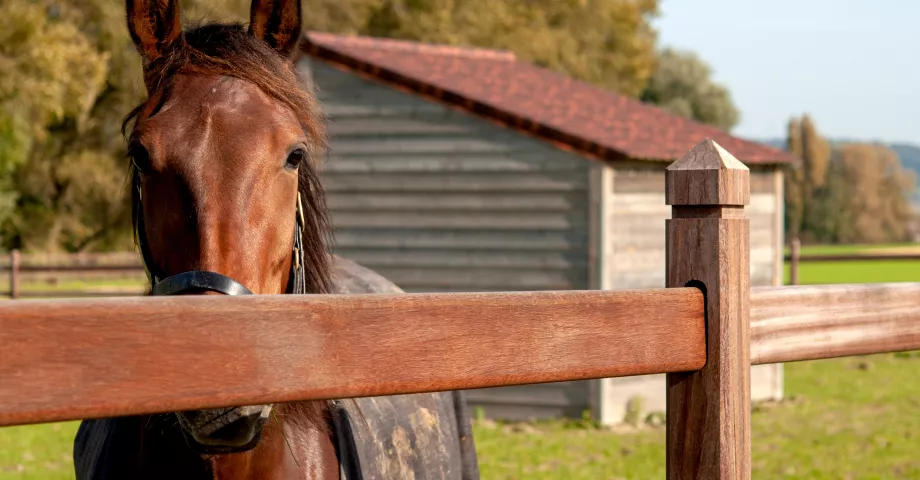
Fencing
Are you looking for the right height for fencing your animals? A good pasture fence not only keeps your animals safely inside but also prevents unwanted visitors from entering.
Related products
Wooden Fences
Wooden fences for horse fields | High quality, safe and animal-friendly | A visual added value for your property.
Composite fences 'Infinity'
Composite fences for horse fields | Durable fence in recyclable plastic| ECO & authentic country look for an exclusive appearance of your pasture.





